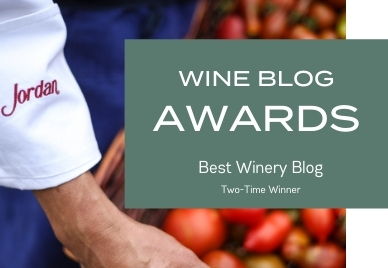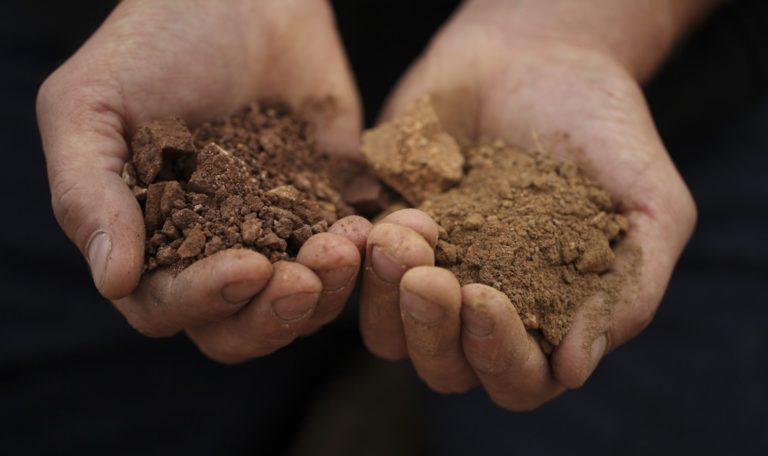Composting is an integral part of our farming practices as a sustainable winery. We began applying compost to our estate vineyards in 2004 and making our own compost pile on the property the following year (video tips below). A natural fertilizer, compost promotes vine and soil health. Healthy grapevines yield higher quality fruit desired to make the finest wines possible. In this composting methods video, we explain why we compost and offer DIY tips for how to compost at home.
Our soils benefit significantly from this annual viticultural practice. Composting methods not only increase permeability of soil structure so that the vine roots can penetrate deeper to retrieve necessary nutrients, but also offer a natural source of nitrogen, phosphorus and potassium. Nitrogen becomes an essential nutrient for vines during two periods: after bud break to veraison (coloring of the berries) and from harvest to leaf fall.
We typically apply compost every spring and only to vineyard blocks that we determine could benefit from a compost addition. We base our decision on vine health and soil structure and fertility. After completing an estate soil study in 2009, we are now using compost in targeted areas to decrease overall fertilizer inputs and soil compaction, while improving nutrient availability and biological activity. (Compost allows us to build a high population of microorganisms, which promote healthy grapevines.) Occasionally, our soils will be deficient in nutrients at the end of the growing season, and in those years, we also apply compost in the fall.
Though there are many types of compost, our compost consists of both green waste and brown waste. It is composed primarily of grape pomace as part of our ongoing efforts to continuously recycle. Making compost for a vineyard and composting at home on a residential scale use the same general practices: source material, oxygen, temperature and moisture levels are key. The videos below highlight composting at the winery, as well as advice on temperature and moisture when composting at home.
There are also many useful resources online for learning how to make your own compost, such as HowToCompost.org and Composting101.com.


